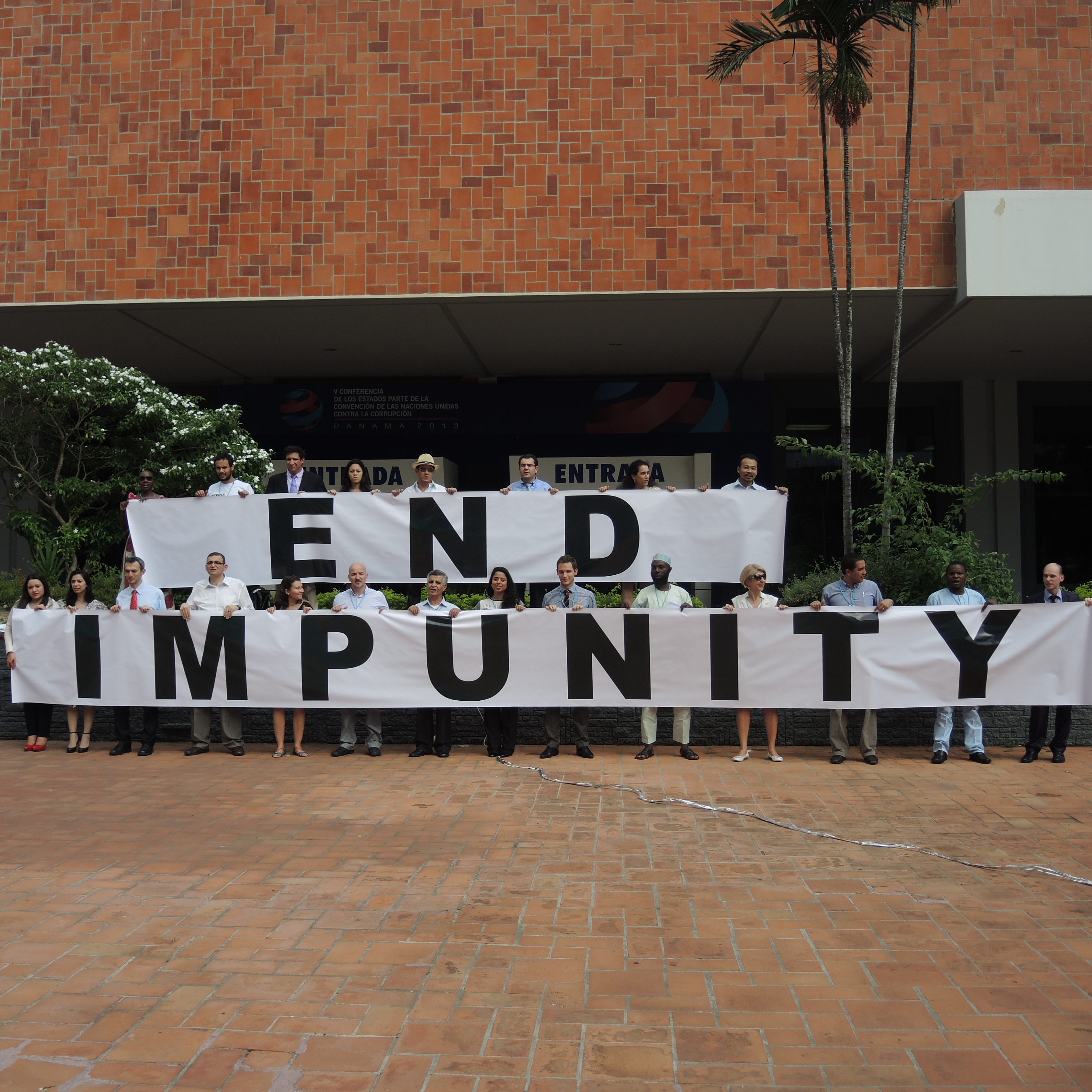Madrid, 13 December 2013 – Access Info Europe has welcomed the progress made on beneficial ownership transparency and access to information mechanisms during the recent conference of governments which are signatories to the UN Convention against Corruption (UNCAC), held on 25-29 November in Panama.
Access Info Europe has been engaged in advocacy for stronger transparency mechanisms under the UNCAC as part of the UNCAC Coalition of civil society organisations. The agreement to promote transparency of the real owners of businesses followed significant advocacy work by civil society as well as an impassioned conference speech by former UN Secretary General Kofi Annan’s directly linking secret company ownership with corruption.
Specifically the member states agreed to promote, “the transparency of legal persons and to exchange best practices in the identification of beneficial owners of legal structures used to commit crimes of corruption or to hide or transfer their proceeds.”
Access Info Europe welcomed the UNCAC Conference commitment ”to continue to take measures to enhance transparency in public administration, including through the introduction of effective measures facilitating access by the public to information.”
Access Info Europe notes that the there was strong resistance from some more hard-line countries who insisted on omitting a specific reference to access to information laws.
“It has been an uphill struggle to get states to recognise at the international level what has already become so clear in many national contexts: that access to information is a fundamental part of the fight against corruption” commented Lydia Medland, Access Info Europe Consultant and UNCAC’s Europe Region Civil Society Coordinator.
Access Info Europe noted that the new language is a marked improvement on the declaration on the prevention of corruption from the previous conference in Marrakesh in 2011. See Access Info’s briefing note here ![]()
![]() .
.
At the same times as these positive developments, the UNCAC Coalition criticised states for “not even wanting to have the discussion” about NGO involvement in the review mechanism for the convention. This came after civil society were for the first time denied copies of conference documents, a worrying development ahead of the next conference to be held in Russia.

